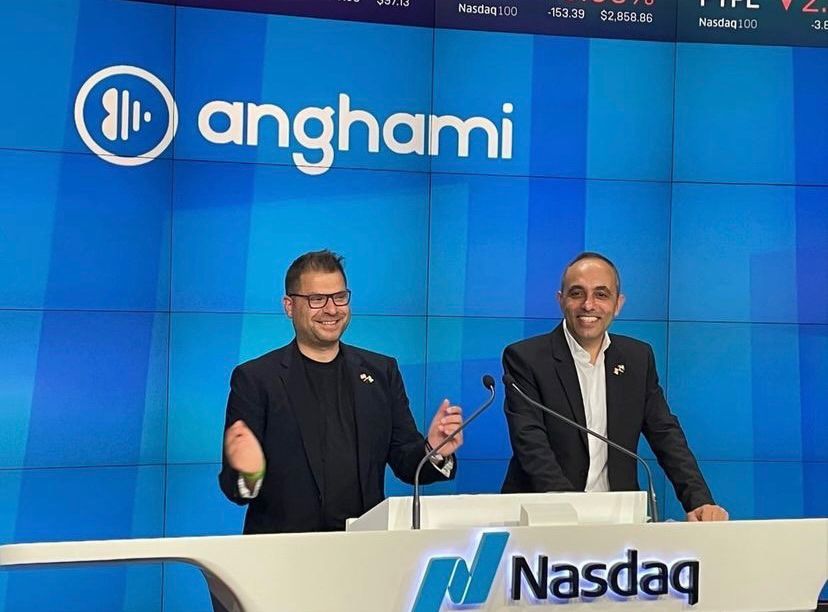By Erika Koutroumpa,
In the past decade, music consumption has been intertwined with the streaming world. In the 2010s, as more people obtained access to portable devices and the internet, the music industry was met with revolutionary changes: long gone were the days of the CDs and the radio and the competition shifted to the digital sphere, where individual streams started raking in more money. This was all thanks to companies like Spotify and SoundCloud, established in 2006 and 2007 respectively, which offered unlimited downloads and replays based on a monthly subscription. For the longest time, streaming companies began their activities in Europe and then started expanding over the rest of the world.
Perhaps it will be a surprise to many that Spotify, the biggest streaming company up to date, was not available in the Middle East until late 2018. Having the second youngest population with a medium age of 23, a continuously increasing number of smartphone users and 285 million people connected to the internet, the Middle East region seemed to be the next target for streaming companies to take over. Nevertheless, the Arab subscribers of the application seem to be weary of indulging in the premium features of the app, given its relative lack of Arab content, relatively high subscription fees compared to the disposable income of the region and the habits that the consumers have established so far. It is estimated that 95% of the music consumption in the region is attributed to pirated music with the rest of the shares being shared by YouTube and the regional streaming app Anghami.

Angami was created in Beirut back in 2012 by Eddy Maroun and Ellie Habib. As it grew, it relocated its headquarters to Abu Dhabi and since March 2021 it is the first Arab tech company to list on Nasdaq. By merging with publicly listed Vistas Media Acquisition Company Inc, the company with more than 70 million registered users, 1,28 million paid users as of H1 2022, and partnerships with regional superstars such as Amr Diab managed to achieve a 29% year-over-year increase for 2022. Anghami’s success is largely attributed to being a streaming app created by Arabs for Arabs, meaning that its creators had inside knowledge of the population’s daily life, needs and what appeals to the market and what would not work. Furthermore, Anghami supports the Arab music industry something which its western counterparts who have tried to expand to the region have neglected to do. To further support local artists, the Angami team has moved towards establishing a boutique record label, “vibe” in partnership with Sony, a recording studio in Riyadh, Saudi Arabia and is planning to delve into hosting live events. According to Habib in a recent interview 1% of the website’s catalogue is Arabic music, but it accounts for 60% of the traffic generated. And this is backed up by the statistics, since according to the IFPI, 54% of people between the ages 16-44 in the UAE usually listen to a minimum of one middle eastern genre.

Despite the growth the company experienced in 2022, with a 15% increase in music traffic among other things, the company had to downsize its number of employees by 22% and 19% savings in cloud computing costs due to the economic recession in the region. But it is not just Anghami that keeps on growing. The International phonographic industry has shown that market revenues in the MENA region grew by 35% in 2021, making the region the fastest-growing in the world with streaming consisting of 95.3% of the market’s revenue. It is no secret that the Middle East has tremendous growth potential for technology companies, especially considering that 90% of the population of countries like Bahrain, Kuwait and UAE are mobile subscribers. And global streaming moguls seem to be trying to make the best of it. During the end of 2022, Anghami saw a leap in subscription revenue by about 27%, an 8% spike following rumours of a buyout by rival Spotify. Even though so far it seems that the speculations did not hold any ground whatsoever, this clearly shows the growth opportunities for both the company and the music industry in the region.
To sum up, music streaming in the Middle East is a rapidly growing sector with great potential. The competition between streaming companies keeps on increasing in size, however it seems that few have truly grasped the needs and preferences of the region. Anghami thanks to a combination of the right time, investment and the innate advantage of knowing the demographic that it addresses has managed to establish itself as a force to be reckoned with against global giants. What the future holds for the music sector in the MENA is yet to be seen, but one thing seems to be certain; tech companies might have to reevaluate their regional strategies, aiming to obtain further insider knowledge and to be more inclusive towards their target audience.
References
-
“Will we ever stop pirating music?”, Yassine Hariss, 8 March 2021, milleworld.com. Available here
-
“Arab music industry new target for global streaming giants”, 18 November 2020, aljazeera.com. Available here
-
“Anghami became the ‘Spotify of the Middle East.’ Now it’s moving to live events”, Bijan Hosseini, 13 December 2022, edition.cnn.com. Available here
-
“MENA region music streaming charts ‘in development,’ industry federation says”, 19 May 2022, arabnews.com. Available here
-
“Spotify launches streaming service in the Middle East”, Paul Blake, 13 November 2018, bbc.com. Available here




